Ramadan is not only the month of new TV series, new TV shows, it is also the release month for a wide variety of TV advertisements.
A particular genre of TV ads. – that is particularly popular in Ramadan – is the one pertaining to charity, and donating to charitable organizations and allocating resources towards good causes. This Ramadan is no exception. A particular ad. that has caused a lot of uproar on Egypt’s social media networks, was the one featuring Egyptian actress Dalal Abdel Aziz.
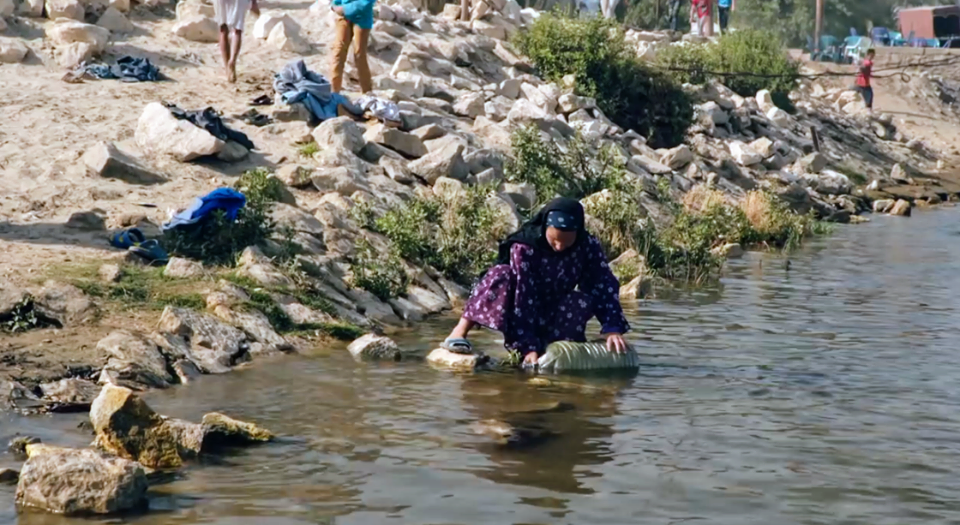
Dalal is featured alongside an old woman – called Afaf – who is going to the local village lake, in order to get water. The water the old woman gets, however, has an evident green hew, i.e. the water that the old lady is drinking is extremely polluted.
Abdel Aziz then gently taps Afaf on the shoulder, in an attempt to comfort her. Social media users have attacked this particular scene in the advertisement.
Social media users, rightfully, found that the kind of pity shown by Abdel Aziz, is one that is somewhat reflective of elitism and classism, rather than being reflective of genuine empathy and/or care.
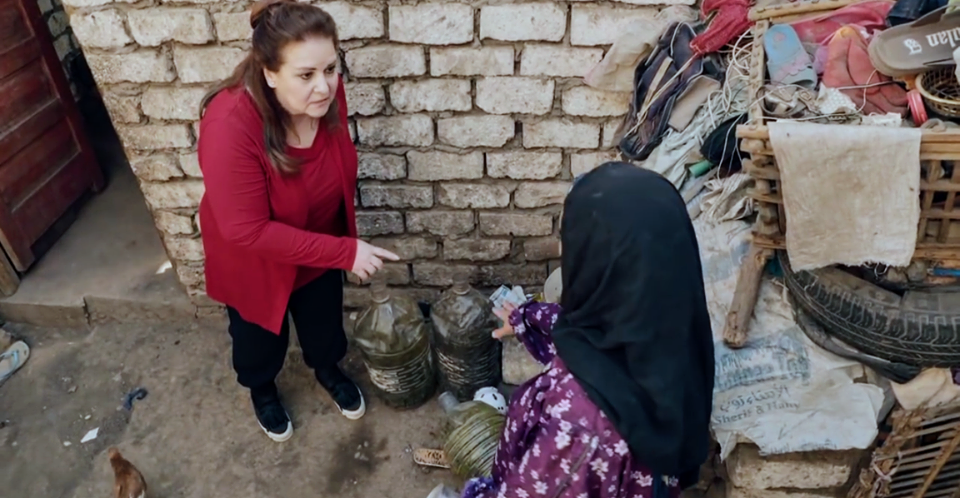
What is particularly outraging is second 44 of the advertisement. After Afaf shows Abdel Aziz the horrid water that Afaf and her family drink, Abdel Aziz’s response is a mere “Ma3lesh”, which translates into “Sorry.”
Yes, a mere Sorry, is what women like Afaf deserve. A mere sorry from Abdel Aziz will truly magically turn Afaf’s water clean, and make her life better. The advertisement ends in a call for charitable donations to be made, so as to ensure that small Egyptian villages all receive clean water.
While we understand and appreciate the good intentions and the generous sentiment that motivates the advertisement, this ad. has just gone too far. The question we would like to pose pertains to why the lack of clean water anywhere in Egypt ought to be framed as a problem that members of civil society are responsible for fixing.
Civil society and every day citizens simply do not have access to the kind of organized and institutionalized logistical infrastructure that would be required to ensure that all Egyptians use clean water.

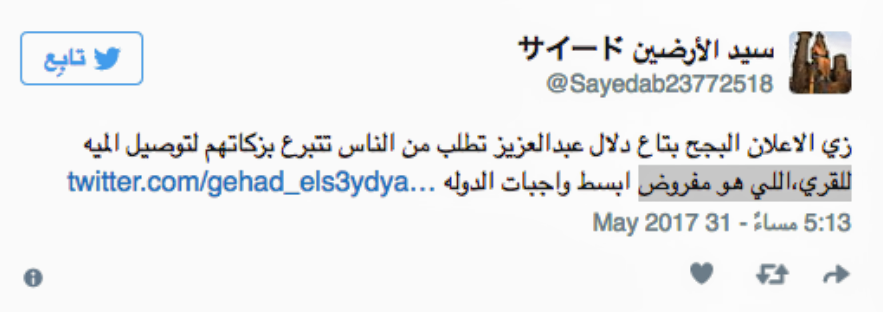
Some people may argue that all this is secondary, since there is a reality that dictates immediate action and aid. The source of the aid does not matter to these people: what is most important is getting as many people as possible access to clean water sources.
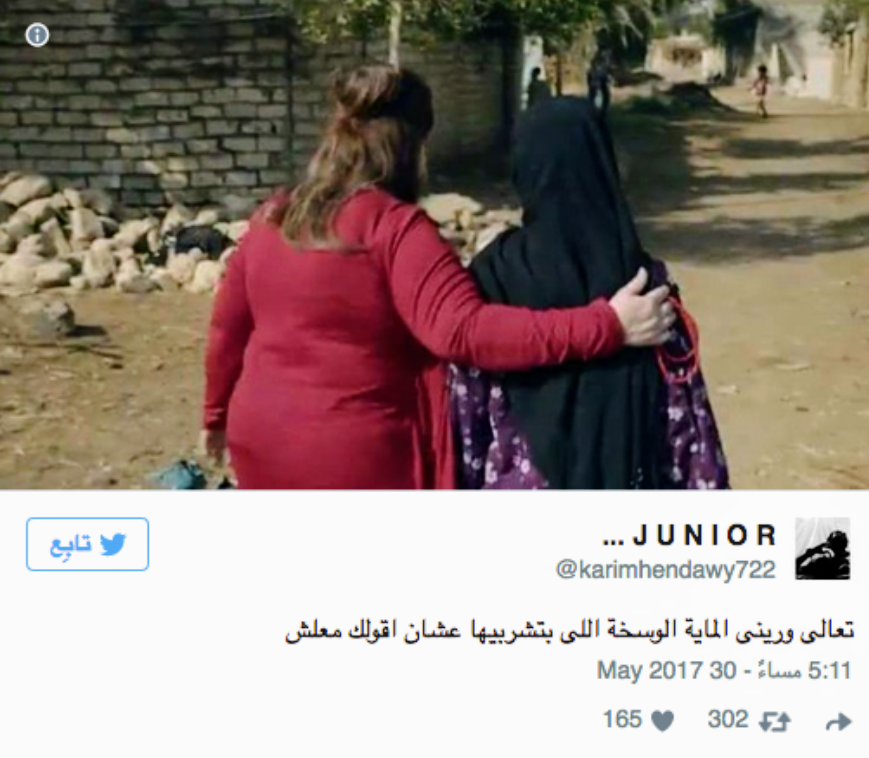
While we do understand the argument that it is important for there to be a general sense of civic responsibility, it ought not be taken for granted or exclusively framed as such a responsibility.
Indeed, while we are donating such aid, we have to bear in mind a much larger and much more important questions: why is this still the case? Why, in the 21st century, do we still have a large faction of Egypt’s population barred from access to clean water?
Yes, it is a large faction. Unfortunately, what you saw in Abdel Aziz’s TV ad. is not as an exceptional of a circumstance as we would like it to be.
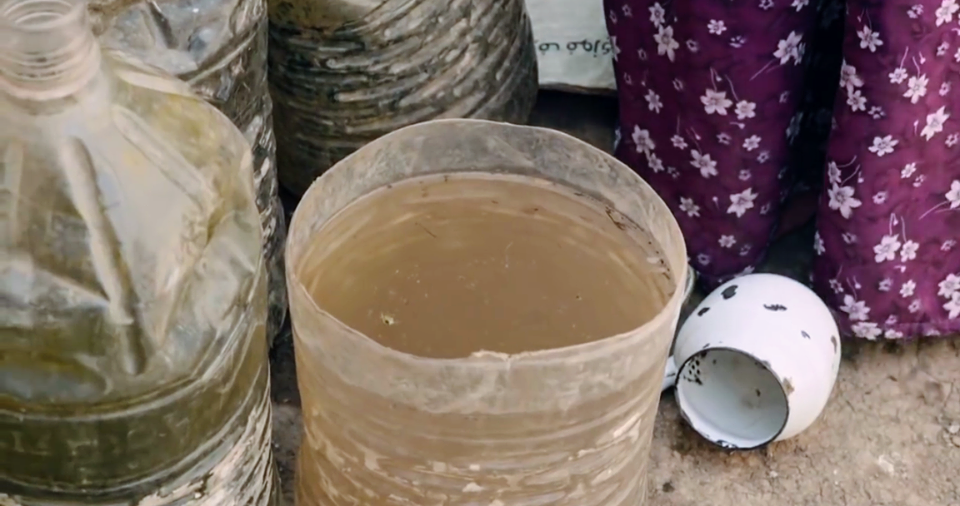
This is yet another reason to question whether or not the responsibility ought to lie on civil society; the fact that places without access to clean water are actually not that exceptional in Egypt makes the call for organized action even more necessary.


